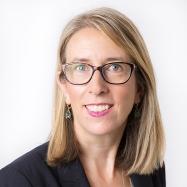Collaborative solutions tackle cacao’s deepest issues
Data, partnerships and bespoke company programs are fueling a more comprehensive approach to cacao production, addressing social, environmental and economic issues, along with quality and transparency. Experts from Guittard Chocolate Co., Luker Chocolate, ofi, Beyond Good and Virginia Dare Extract Co. explain why.
February 20, 2024

At a Glance
- New data-driven and collaborative solutions are emerging to address deeper issues in cacao sourcing.
- Initiatives focus on fostering cacao-growing communities through entrepreneurial programs, education and access to resources.
- Guittard Chocolate Co., Luker Chocolate and Beyond Good are integrating sustainable practices into their supply chains.
Despite certifications like Fair Trade, major challenges persist in cacao sourcing, including child labor, deforestation and poverty. New data-driven, collaborative solutions offer hope for a more sustainable future.
“Certifications alone don’t solve the issues, but with brand awareness of certifications being so high, they provide a quick and easy way for consumers to know that a company is taking steps toward building a robust and comprehensive sourcing practice,” John Kehoe, director of sustainability at Guittard Chocolate Co., said. “Beyond certifications, collective action — partnerships between industry and origin governments — is essential to address root causes.”
Guittard Chocolate Co. has always championed sustainable practices throughout its 156-year history, according to Kehoe, who said company programs also play an important role in integrating these practices and policies into supply chains. Though many companies weren’t as heavily involved in sustainable practices 25 years ago as they are today, per Kehoe, growing consumer awareness has helped.
Bespoke company programs
Fair Trade Certified, as an early tool to further social causes, among various other standards, guaranteed a minimum price for growers. It also required additional funds to be paid into Community Development Funds so that cooperatives could invest in critical needs for the community — such as healthcare, education and clean water — and support business needs. Today, brand-supplier collaborations trace the source of cacao to specific communities, resulting in bespoke initiatives, including pathways to entrepreneurship.
The instability of small-holder farming regions in the global south is accelerating at an alarming rate. Farmers and community members are abandoning land and relocating to urban areas in pursuit of opportunities. Building resiliency and stability in these vulnerable sourcing communities is critical to keeping supply chains flowing. Colombia-based cacao supplier Luker Chocolate recognizes the need to build agency among producers, as well as the surrounding community.
The company works on a collaborative initiative, known as The Chocolate Dream, which relies on clients, communities, cocoa growers and their families.
“Since we have people from our team living together with those communities, this is how we create bespoke projects,” Julia Inés Ocampo Duque, VP of cacao sourcing and sustainability at Luker Chocolate, said. “We can touch on the needs from this population and match it to the inspiration from the clients.”
What emerges is connecting brand partners to communities with aligned goals to cocreate initiatives. “Sometimes, it is more important to work on environmental solutions [or other times] to work on social aspects,” Duque explained, adding the community’s voice determines who is the better brand partner match.
A similar initiative, Empowering Dreams, with UK-based Pots & Co. leverages bespoke entrepreneurial programs. “Its founder was very passionate about entrepreneurship, so together we developed [this] project to promote entrepreneurship projects in cacao-growing regions of Colombia,” Marcela Jaramillo, VP of marketing, said. “This is really important because it opens up opportunities for women and young people who do not always have additional sources of income. Through that process, we identified entrepreneurship as a key driver of prosperity in rural regions.”
Activating entrepreneurship in Colombia includes educating communities that agroforestry practices offer growth and prosperity in cacao production, making it more attractive than illegal alternatives. It also means educating farmers to produce efficiently, freeing up their time to engage in educational programs that expand entrepreneurial skills, and in turn, diversify incomes and create communities built with amenities members can access close to home.
Data, digital tools
Data is key, especially sustainability and impact data. Initiatives and programs have admirable goals, but as the world understands metrics and gets more data savvy, many brands and suppliers are immersing themselves in more clearly mapped commitments.
In 2018, ingredient trader and supplier Olam Food Ingredients (ofi) debuted a sustainability management tool for its customers, known as AtSource. The tool provides assurance that key sustainability topics in specific supply chains are well-managed, with detailed social and environmental data that provides transparency and traceability, according to Andrew Brooks, head of cocoa sustainability at ofi. “This means that customers have a clearer picture of their supply chain so they can more easily direct their actions and resources to where they are most needed,” he said.
AtSource was also recognized for its Carbon Scenario Planner tool, which allows food and beverage manufacturers to “model the impact of different scenarios for reducing greenhouse gas emissions.” “This supports customers to meet their SBTi [Science Based Targets initiative] targets and reporting commitments, as well as real-life impact stories to share with consumers about the people and places behind the ingredients in their products,” Brooks said.
As the marketplace continues to entrench itself in impact performance data, brands and suppliers of various sizes are experiencing pressure points differently. For some, retailers are asking for it, and for others, their shareholders. Beyond that, regulators, and of course, consumers.
Social enterprise Beyond Good (formerly Madécasse) is committed to using data to support its goals. The company has a commitment to cultivate greater agency among cacao producers in Madagascar and Uganda through higher premiums, manufacturing at origin and resilient land that generates stable incomes. To do so, it’s using data to measure reforestation, deforestation and biodiversity, according to Tim McCollum, founder and CEO of Beyond Good.
“Due to our direct relationships with farmers and partnership with a Madagascar-based NGO, we survey biodiversity on a parcel of land to quantify how many species are present,” he explained. “They put pressure on themselves to collect data and track impact to keep them true to who they are and to be factual about what they say.”
McCollum said the company is updating its packaging for chocolate sourced from Madagascar with messaging that specifies how “89 species of plants and animals” are living in the cacao forests it owns.
Quality
Another element tethered to sustainable outcomes is quality. Quality, which is tested through various quality control steps including flavor, is essential alongside sound environmental and social practices.
“Great-tasting cocoa and high-quality cocoa go hand in hand with sustainability,” Kehoe said. “Guittard, along with the support of World Cocoa Foundation, USAID [United States Agency for International Development], Swisscontact and Millennium Challenge Corp. established flavor labs at cacao research centers in West Africa, Indonesia and Ecuador.”
By bringing producers and cooperatives further up the value chain through its Learning by Tasting initiative, farmers are “able to taste their own cacao to know that it’s good quality,” according to Kehoe. This gives farmers the benefit of associating the right farming practices and quality controls that yield best-in-class flavor profiles for the various varieties grown.
Empowering smaller companies
Flavor house Virginia Dare Extract Co. is working with 1,300 vanilla growers in Madagascar to shift power back to the producer.
“Across 11 coops, emerging workers are invited to apprentice at the main facility in curing, administration and processing roles for preparing vanilla for export,” Henry Todd, VP of international operations at Virginia Dare Extract Co., said.
Similar to Guittard Chocolate Co., Village Savings and Loans Associations (VSLAs) are established by Virginia Dare Extract Co. to support family emergencies like healthcare and education. Most importantly, the company works to educate cooperatives to have an equal voice and arm them with the tools to negotiate prices and contracts — actions that are usually absent among small-holder communities.
“Success to us is to turn coops into powerful coops,” Todd explained. “We disintermediate ourselves,” meaning cooperatives have the power to negotiate prices and sell to whomever they want. The company encourages nonexclusive buying relationships with growers.
Micro-lending
While micro-lending has been an essential tool to support rural communities in the global south for decades, it has also become instrumental to cacao-growing communities.
With on-the-ground partners in communities around the world, Kehoe said “women-led VSLAs can be very impactful helping farmers and community members save money and lend it among themselves.”
VSLAs can also serve as a way to invest back into farms. “Cocoa has two primary crop periods; Outside of those periods, farmers benefit from supplementing their income through diversified income streams,” Kehoe explained. “A VSLA is one way to assist in funding those secondary ventures. For example, farmers may choose to invest in a freezer, where they can store and sell fresh fish, or perhaps fund a soap-making venture — both of which are examples from our Cultivate Better cocoa-growing communities.”
About the Author
You May Also Like

